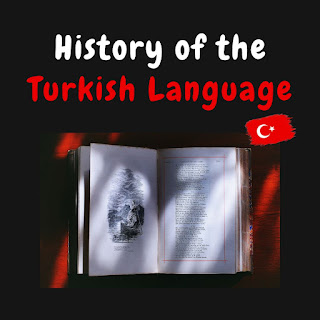The Turkish language is a fascinating and complex language with a rich history and diverse cultural influences. It has its roots in the Turkic language family, which is a branch of the larger Altaic language family that also includes Mongolian, Manchu, and Korean. The origins of the Turkish language can be traced back to the Turkic-speaking nomadic tribes of Central Asia, who eventually migrated to the territories of present-day Turkey.
The earliest written records of the Turkish language date back to the 6th century, when the Turkic-speaking tribes of the Gokturk Khaganate wrote inscriptions in the Old Turkic script. This script, which was based on the runic alphabet used by the Scandinavian Vikings, was used for religious and administrative purposes and was widely used among the Turkic-speaking nomads of Central Asia.
With the rise of the Ottoman Empire in the late 13th century, Turkish became the dominant language of the empire and was used for official purposes. During this time, Turkish absorbed many loanwords from Arabic, Persian, and other languages, which enriched the vocabulary of the language and helped it to evolve and grow.
In the 20th century, Turkish underwent a major reform under the leadership of Mustafa Kemal Atatürk, the founder of modern Turkey. Atatürk introduced sweeping reforms aimed at modernizing Turkey and establishing it as a secular, democratic republic. As part of these reforms, Atatürk introduced a new alphabet based on the Latin script and promoted the use of Turkish as the official language of the country.
Today, Turkish is spoken by over 80 million people around the world and is one of the most widely spoken Turkic languages. It is the official language of Turkey and is also widely spoken in Cyprus, Azerbaijan, and other countries.
In conclusion, the Turkish language has a rich and complex history that has been shaped by centuries of cultural and linguistic influences. From its roots in the Turkic-speaking nomads of Central Asia to its use as the official language of the Ottoman Empire and modern-day Turkey, Turkish is a language with a rich cultural heritage and a fascinating history.












No comments:
Post a Comment